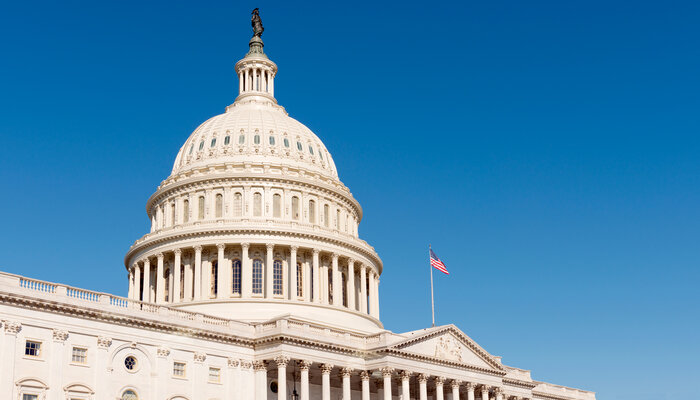Last week, the U.S. Court of Appeals for the DC Circuit heard argument on Donald Trump’s claim that, under the Constitution, he can’t be federally prosecuted for any “official” acts during his presidency because Congress didn’t impeach and convict him. That would give senators representing a tiny fraction of the country — as low as 14 percent of the population — the power to shield a president from prosecution. It would allow a political faction to nullify the rule of law.
The panel was skeptical, to put it mildly. And for many good reasons. Trump’s argument would dangerously undermine the rule of law, allowing presidents to abuse the unique powers they wield in office. It’s inconsistent with the text and history of the Constitution. It’s inconsistent with the argument Trump himself made in his impeachment trial that criminal prosecution would be more “appropriate” than impeachment. And in one aspect that has not gotten enough attention, Trump’s argument overlooks meaningful distinctions between impeachment, a political process for determining whether a sitting official’s crimes make him unfit for office, and prosecution, a factual determination of whether an individual has violated established criminal law. Indeed, some of the senators who acquitted Trump in 2021 cited as their reason that his term had ended and that he could be prosecuted after leaving office.
At oral argument, Judge Florence Pan posed various scenarios in which a president commits serious crimes: He orders the Navy Seals to assassinate a political rival or sells pardons or state secrets. Trump’s lawyer, D. John Sauer — who incidentally filed a brief in 2020 seeking to overturn the presidential election results — responded that, in these scenarios, Congress surely would authorize prosecution by “speedily” impeaching and convicting the president. And he argued that Congress should be the body playing this gatekeeping role because it’s “the branch most politically accountable” and therefore the best-positioned to decide which presidential crimes warrant punishment. Selectively quoting from the Federalist Papers, Sauer warned that only Congress can protect us against the risk that “‘violent factions’” will “‘wreak[] their alternate malignity on each other’” through politically-motivated prosecutions.
Sauer’s argument fundamentally misunderstands Congress and how it exercises its impeachment and conviction powers. Impeachment and conviction above all are a process for deciding whether a president should stay in office. Committing a crime is not enough (or even required). And we have seen that impeachment has turned out to be a weak means for holding presidents accountable. There have been four impeachments in the country’s history, but no convictions.
At this point impeachment seems more like performative politics than anything else. It sure seems like many current members of Congress are out to “wreak their alternate malignity” on President Biden by impeaching him for . . . reasons they’re not yet able to identify. By contrast, if a former president is prosecuted, the government must produce sufficient evidence to persuade a unanimous jury of private citizens that he’s guilty beyond a reasonable doubt — with procedural safeguards enforced by the court and with appellate review of any conviction.
But even if Congress did take the impeachment process seriously, it would make little sense to require conviction through this process before any prosecution could begin. The deeply unrepresentative constitution of the Senate, combined with the two-thirds threshold for convicting an officer in that body, allows a small faction to acquit an impeached president even if he’s obviously guilty of serious criminal conduct.
Recall that because each state has two votes in the Senate, Wyoming has the same votes as California even though it has 1/67 the population; the District of Columbia, with more residents than Wyoming, has no vote. In effect, this means that, if senators from the 17 smallest states opposed conviction, they would prevail despite representing only 7 percent of the population. More realistically, if we assume that senators tend to support presidents of the same party, Republican senators representing only 14 percent of the population had the power to acquit Trump, their party leader, when he was tried in 2021.
In this age of party polarization, a near–party line vote to acquit a president despite overwhelming evidence of dangerous crimes is an entirely realistic scenario. Indeed, only one senator crossed party lines to vote for Trump’s removal in 2020 after he withheld military aid to Ukraine to coerce its president into producing damning evidence against Biden, and only seven senators crossed party lines to vote for his removal in 2021 after he incited a mob to insurrection. For Trump to have been convicted in 2021, more than twice as many Republicans would have had to do so.
These realities make the assurances of Trump’s lawyer ring hollow. The Senate is not remotely representative or accountable to the majority, and it will not save us from criminal politicians. For that, we need prosecutors, courts, and citizen juries.



